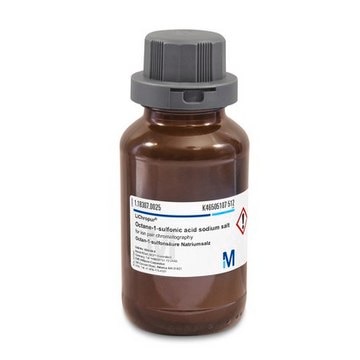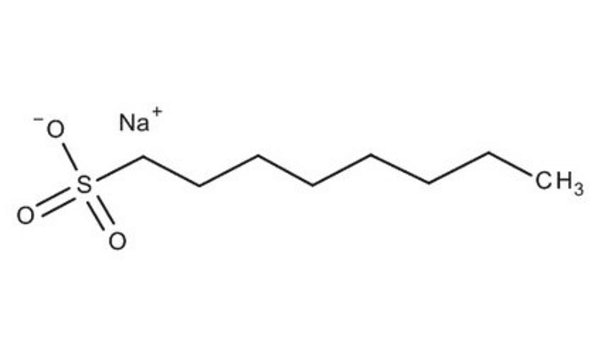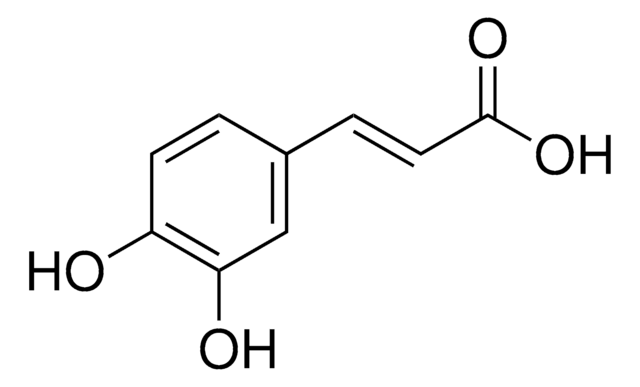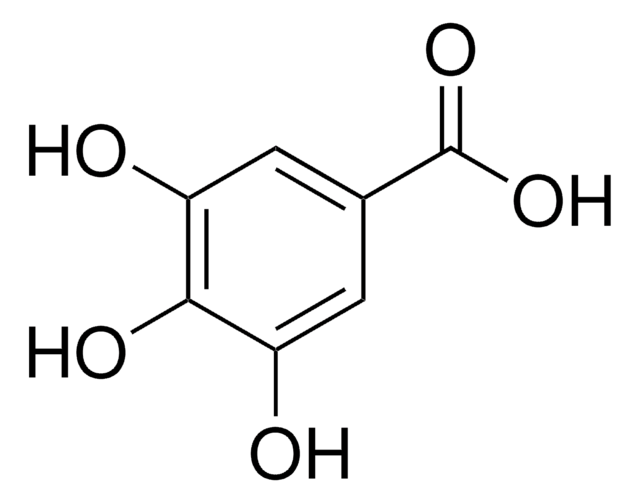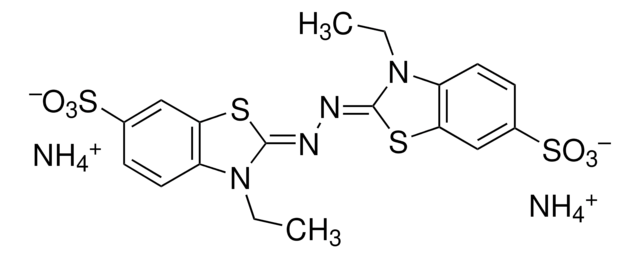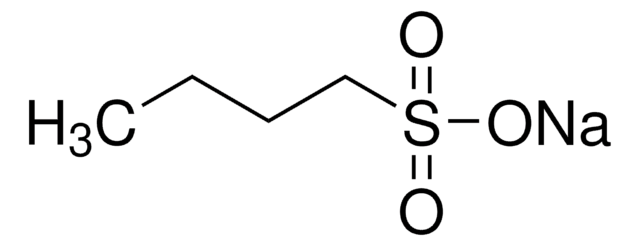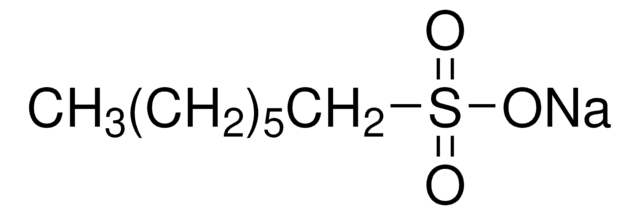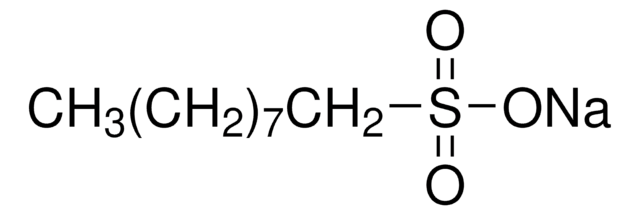74882
Sodium 1-octanesulfonate monohydrate
suitable for ion pair chromatography, LiChropur™, ≥99.0% (T)
Synonym(s):
1-Octanesulfonic acid sodium salt monohydrate
About This Item
Recommended Products
description
anionic
Quality Level
assay
≥99.0% (T)
form
sheet
quality
LiChropur™
mol wt
234.29 g/mol
technique(s)
ion pair chromatography: suitable
mp
≥300 °C (lit.)
λ
10 % in H2O
UV absorption
λ: 210 nm Amax: 0.1
λ: 220 nm Amax: 0.06
λ: 230 nm Amax: 0.04
λ: 260 nm Amax: 0.02
λ: 500 nm Amax: 0.02
suitability
corresponds to standard for RP gradient test
corresponds to standard for filter test
SMILES string
O.[Na+].CCCCCCCCS([O-])(=O)=O
InChI
1S/C8H18O3S.Na.H2O/c1-2-3-4-5-6-7-8-12(9,10)11;;/h2-8H2,1H3,(H,9,10,11);;1H2/q;+1;/p-1
InChI key
MBURIAHQXJQKRE-UHFFFAOYSA-M
Looking for similar products? Visit Product Comparison Guide
General description
Application
Legal Information
Storage Class
11 - Combustible Solids
wgk_germany
WGK 3
flash_point_f
Not applicable
flash_point_c
Not applicable
ppe
Eyeshields, Gloves, type N95 (US)
Choose from one of the most recent versions:
Certificates of Analysis (COA)
Sorry, we don't have COAs for this product available online at this time.
If you need assistance, please contact Customer Support.
Already Own This Product?
Find documentation for the products that you have recently purchased in the Document Library.
Customers Also Viewed
Protocols
Because reversed-phase HPLC is primarily dependent on hydrophobic interactions between the stationary phase and analyte, ion pairing is occasionally necessary to obtain sufficient retention of polar, ionizable compounds.
Our team of scientists has experience in all areas of research including Life Science, Material Science, Chemical Synthesis, Chromatography, Analytical and many others.
Contact Technical Service
